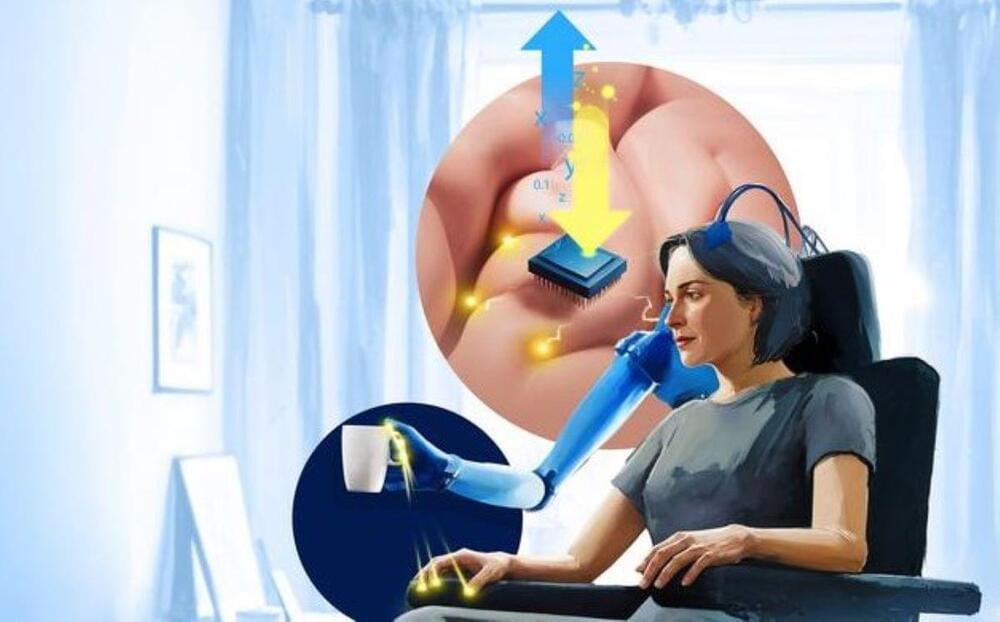All seven of the other planets in our solar system are about to become visible at once in a great planetary alignment – here’s how to spot the celestial show.
By Leah Crane

All seven of the other planets in our solar system are about to become visible at once in a great planetary alignment – here’s how to spot the celestial show.
By Leah Crane


Researchers publishing in Physical Review X have discovered compounds that can double the efficiency of the sirtuin SIRT3 in processing NAD+.
Looking for a new way to boost enzymes
The researchers begin their paper by noting that most drugs administered to people are geared towards inhibition of particular enzymes in order to treat a disease. In this case, however, the goal is the opposite: to boost the function of an enzyme, thereby boosting a healthy phenotype rather than battling back a diseased one.

Summary: A study analyzing data from over 2 million veterans found that GLP-1 receptor agonists, popular weight-loss drugs like Ozempic and Wegovy, provide significant neurological and behavioral health benefits, including reduced risks of addiction, Alzheimer’s, and dementia. However, they also pose risks for pancreatitis and kidney conditions, emphasizing the need for careful monitoring.
The drugs mimic hormones that curb appetite and aid weight loss but may act on brain regions tied to impulse control and inflammation, explaining their broad effects. Researchers stress that while the benefits are modest, they may be impactful for conditions with limited treatment options, highlighting both their potential and limitations.

A new way of interpreting standard blood tests could help doctors spot cancer warning signs sooner, according to scientists.
Experts believe it could flag 10,000 patients a year who have a raised blood platelet count before their cancer diagnosis — leading to ‘earlier diagnosis and better patient outcomes’

Groundbreaking research uses brain stimulation to restore touch in prosthetics. Precise, stable sensations bring natural-like feedback closer, improving motor control and quality of life.
Summary: Researchers are making strides in restoring touch sensations to prosthetic limbs through brain stimulation. By using electrodes in the brain’s touch center, they can evoke stable, precise sensations, even allowing users to feel the shape and motion of objects.
This breakthrough could enable prosthetic users to perform tasks requiring fine motor control with confidence. Long-term tests show consistent sensation locations, critical for real-world usability.
Advanced stimulation patterns further enhance the tactile experience, mimicking natural touch. These innovations mark significant progress toward neuroprosthetics that improve quality of life for people with limb loss or sensory impairments.

Patreon: https://www.patreon.com/mattbatwings.
Discord: https://discord.gg/V5KFaF63mV
My socials: https://linktr.ee/mattbatwings.
My texture pack: https://modrinth.com/resourcepack/mattpack.
Original Playlist: https://www.youtube.com/playlist?list=PL5LiOvrbVo8nPTtdXAdSmDWzu85zzdgRT
LRR: (Recommended Prerequisite) https://www.youtube.com/playlist?list=PL5LiOvrbVo8keeEWRZVaHfprU4zQTCsV4
ALL WORLD DOWNLOADS can be found on my Planetminecraft: https://www.planetminecraft.com/member/mattbatwings/
Project Repo: https://github.com/mattbatwings/BatPU-2
Final Instruction Set (Spreadsheet): https://docs.google.com/spreadsheets/d/1Bj3wHV-JifR2vP4HRYoC…8Nm56W4aI/
Final World Download: https://www.planetminecraft.com/project/new-redstone-computer/
Thumbnail made by @Sloimay.
0:00 Intro.
0:17 Episode 1 — Introduction to Computing.
10:23 Episode 2 — The Arithmetic Logic Unit.
26:29 Episode 3 — The Register File.
39:37 Episode 4 — Machine Code & Assembly.
52:28 Episode 5 — Instruction Memory.
1:06:11 Episode 6 — The Program Counter.
1:16:43 Episode 7 — Jumping, Branching, & Flags.
1:34:27 Episode 8 — The Call Stack.
1:45:24 Episode 9 — Data Memory.
1:56:13 Episode 10 — Input & Output.
2:11:46 Episode 11 — Assembly Programming.
Music (in order):

A small dose of low-power laser light activated dental stem cells in rat molars to generate dentin, one of the major components of teeth. The finding may lead to new approaches to develop low-cost, non-invasive therapies for treating dental disease and tooth damage.
Dentists currently use inert materials to repair damaged teeth. Tissue regeneration would be an attractive alternative, because inert materials can fail with time and don’t provide the full function of the tissue. Stimulating regeneration of teeth, however, is a major challenge. Teeth are composed of several parts, including the pulp at the core, dentin in the middle, and enamel on the surface.
Stem cells, found throughout the body, can give rise to specialized cells. Researchers have been able to coax stem cells to transform (differentiate) into many types of cells in the laboratory before infusing them into the body. But these techniques are time consuming and can bring unwanted side effects.
